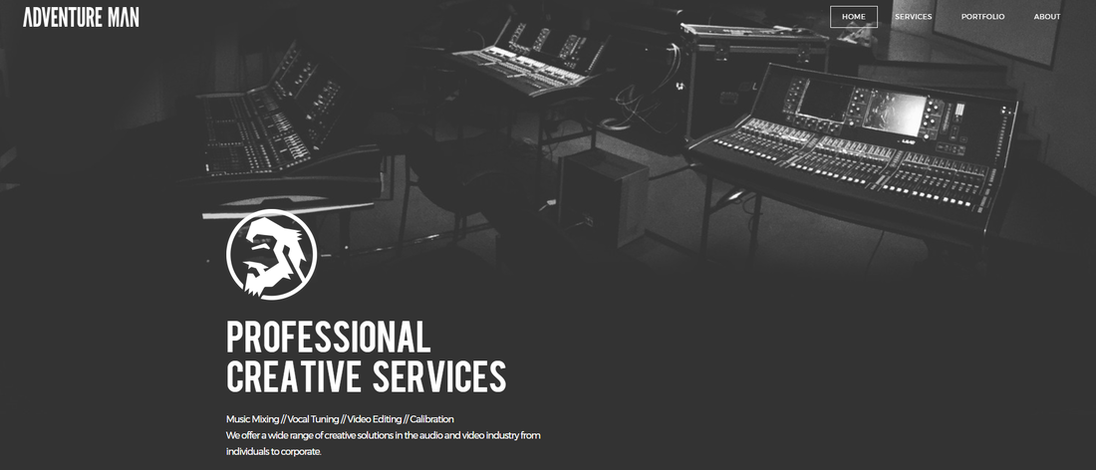Perfectionism or ExcellencePerfection is a futile and unforgiving pursuit. Demoralise, create unnecessary pressures, cause anxiety are amongst its long list of consequences. Although not everything in the list is negative but one has to admit that it is a pursuit with diminishing returns the more invested we are towards it.
Personally, I am guilty of that exact said pursuit. I saw perfectionism as the ultimate purpose for every work that I embarked on. 'Ism-ing' it in my guitar playing, music writing, mixing, work, fitness, relationships... the list goes on like a mantra and a habit. Perfectionism made sense then but I never was able to accomplish anything much. Instead it really held me back from my greatest potential. It was a miserable time for me as a creative. You see, perfection is goal oriented, extremely absolute. It is all about the result and anything less than 100% is a failure. That mindset is really destructive and counter productive. It is disadvantageous for people in groups with different drive levels and expectations as perfectionism is a terrible motivator. This also makes it a terrible motivation for individuals because the results are unattainable regardless of effort. The world is not perfect as our lives so that means it will always yield to external factors that are beyond our control. So how do we break this crippling philosophy called 'Perfectionism'? The 'Excellence' philosophy. Where perfectionism is goal oriented, excellence is about the process. The focus is on the journey, about personal growth and empowerment. A sense of greater purpose rather than crippling reasoning. I embarked on this philosophical journey of excellence a few years ago and to say the very least has been very life redeeming. A sense of freedom to test my strengths, my limits. To test my character against the odds, the challenges of life. Even when failure is the result, I would still be able to come out of it better and hopefully wiser. Results are important. Do not go around mistaking the fact that our very lives are bound to results and consequences. But that does not mean that the actions taken justifies the results at the end. Hitting your sales target but at the expense of friends or colleagues. Achieving work KPIs but neglecting your relationships. I hope you can see a pattern forming. This was and still is a profound discovery for me. To not be crippled by the limitations of futility is very important. Failure means room for improvement. Shortcomings gives way to progress and growth. I hope this will also be a great step towards personal growth for you. Excellence is a philosophy and a habit very much like perfectionism. But where it diverges is how it impacts your mental health, lifestyle and well being. Notes: I would like to share my deep gratitude for my friend and musical mentor David Gary for investing your time and resources into my life even though I was such a pain to deal with. For sharing your life experiences and teaching me the 'Spirit of Excellence'. Thank you! Photo by Hailey Kean on Unsplash
1 Comment
MIXING CHEAT SHEETThis "Mixing Cheat Sheet" is provided courtesy of Daniel Krishnan, founder and lead engineer of Adventure Man Creative Services. Please visit his website at ADVENTUREMAN.NET to learn more!
This short article may have been written for worship bands in a house of worship setting but every tip shared is still relevant for settings otherwise intended. Everything is copied as-is. If the article beneficial to anyone you know of, please do share it. Thank you for reading and I hope you were able to learn something. Don't forget to subscribe to receive instant updates! See you at the next blog post. MIXING TECHNIQUES FOR WORSHIP What is a good mix? The ability to hear each instruments/singers. The audience does not focus on the sound system but rather the worship and remains engaged in worship. What is the core of a good worship band? Hear each other Hear the lyrics Hear God How to get a good mix? Balance the instrument singers according to who should be the loudest to the softest Listen to your favourite worship song and try to emulate it. LISTENING SESSION (write down what you hear from the loudest to the softest) BALANCING MIX CHEAT SHEET KICK DRUM // LEAD SINGER // LEADING INSTRUMENT BASS GUITAR // BACK UP VOCALIST DRUM KIT ELECTRIC GUITAR // ACOUSTIC GUITAR // PIANO SYNTH // PADS How to use equaliser? When boosting a band of frequencies, always WIDE When cutting a band of frequencies, always NARROW Find the most problematic/annoying/harsh/causing feedback frequency, this is done by boosting a narrow set of frequencies, then swipe it to the left and right to hear the disturbance. Once found, cut that frequency with a NARROW Q. How to use compressor? Start with the threshold, adjusting it lower until the compressor is attenuating the peak. this will help to reduce any over the top volume that can cause hearing damage etc. Make sure the singers are singing their loudest. CONDUCTING AN EFFICIENT SOUNDCHECK: FOR CHURCH WORSHIP REHEARSALSIntroduction
The church has a unique setting when it comes to worship band soundcheck and rehearsals. There is a finite amount of minutes for setup and soundcheck during rehearsals or pre-service setup. Noticing that there is a need to assist and educate houses of worship. I made short notes for the benefit of music directors or leaders for their quick reference. These notes are freely available for distribution but please leave the links and references in the notes intact for copyright purposes. I am also available to conduct trainings for sound system operators and worship band. You can reach out to me via the Contact page. Here we go! Team effort
Stage/instrument/vocal setup
Line Check Flow, Gain Structure & Fader Levels
No incoming signal cheat sheet:
Monitor Send
Closing
Happy May 4th and may the force be with you and don't forget to subscribe to receive instant updates!. Download the PDF Note HERE! AUDIO & ENGINEERING. IS IT REALLY WHAT IT IS?For almost 13 years I have been involved in the entertainment industry. Ever since graduating from audio engineering school, I have received questions as to what I actually do as an audio engineer. The usual questions would be, "Are you something like a DJ?". To prevent further confusion amongst the masses, let me share my thoughts on audio engineering.
The entertainment industry has since evolved in line with the rapid advancement of technology from YouTube and Netflix to Spotify and Apple Music. The consumption of media has changed drastically affecting the industry that drives it and the roles of audio engineers that supports it. Audio Engineers have always had been a behind-the-scenes role in the industry. Don't misunderstand me though, we play a very key role nonetheless. Without audio engineers hit songs will not be hit songs, films become less impressive, concert halls an auditory hell hole. The world would end up being a big sonic disaster. Like doctors, we also have specialist audio engineers in each field. Here's a quick break down for some of the major fields in the various industries. If there is sound or audio involved, you can be sure an audio engineer is found nearby.
I hear you say "Anyone can be an audio engineer then. I just need to be involved or be part of the production". I agree and disagree, all at the same time. For example, digital audio workstations are very accessible now with some being offered for free! That means anyone has access to these audio editing/mixing application to mix or make music. Does that mean once you are utilising the software you automatically become an audio engineer? So how do we actually differentiate an audio engineer vs. a technician or an enthusiast apart from being actually paid to work as a professional. It is the ability to make 'informed decisions' in any part of the production process. This needs to be an important actualisation for many working professionals. Being able to concisely explain why should this piece of audio be processed in such a way. Why should I use this EQ vs. that EQ. What would a compressor with 1:3.3 gain reduction at a threshold of -30db do to this piece of audio track. What is the "Loudness War". Every decision made must serve a purpose and a reason to why it is done. I hope that I was able to explain the roles of an audio engineer. If you are interested in becoming an audio engineer but don't know where to begin or what to expect. Please drop me a message or comment below. If you're an audio engineer and have some funny stories do share them in the comments below. |
about meHey! I'm Bryan Limus, an audio engineer and music producer based in the tropical Borneo city of Kota Kinabalu, Sabah. I enjoy creating art. photography and building stuff whenever I can. I am a musician and also a live sound engineer creating killer mixes. |





 RSS Feed
RSS Feed
